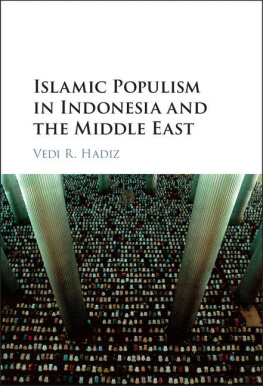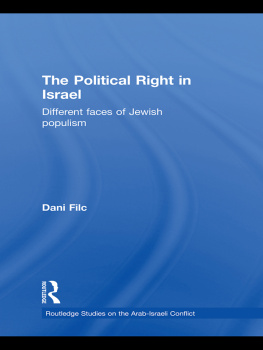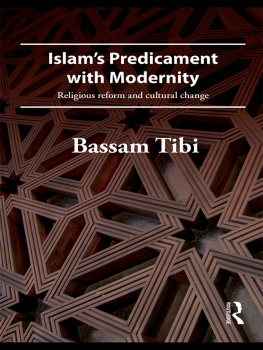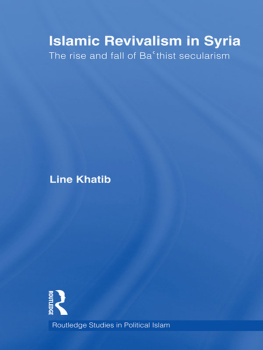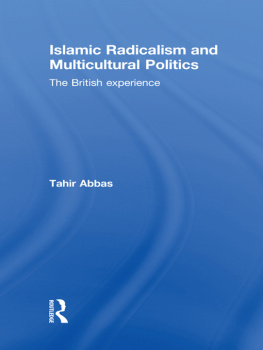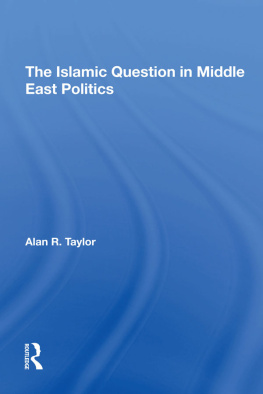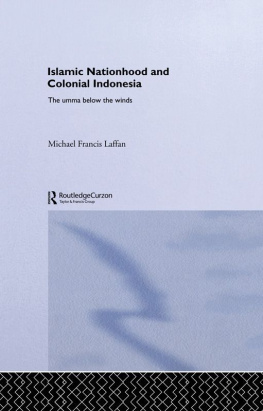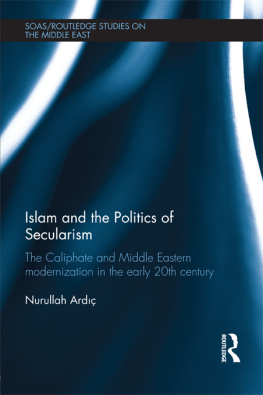In a novel approach to the field of Islamic politics, this provocative new study compares the evolution of Islamic populism in Indonesia, the country with the largest Muslim population in the world, to the Middle East. Utilising approaches from historical sociology and political economy, Vedi Hadiz argues that competing strands of Islamic politics can be understood as the product of contemporary struggles over power and material resources and the result of conflict across a variety of social and historical contexts. Drawing from detailed case studies across the Middle East and Southeast Asia, the book engages with broader theoretical questions about political change in the context of socio-economic transformations and presents an innovative, comparative framework to shed new light on the diverse trajectories of Islamic politics in the modern world.
Vedi R. Hadiz is Professor of Asian Studies at the University of Melbourne.
Vedi R. Hadiz
University Printing House, Cambridge CB2 8BS, United Kingdom
Cambridge University Press is part of the University of Cambridge.
It furthers the Universitys mission by disseminating knowledge in the pursuit of education, learning and research at the highest international levels of excellence.
www.cambridge.org
Information on this title: www.cambridge.org/9781107123601
Vedi R. Hadiz 2016
This publication is in copyright. Subject to statutory exception and to the provisions of relevant collective licensing agreements, no reproduction of any part may take place without the written permission of Cambridge University Press.
First published 2016
A catalogue record for this publication is available from the British Library
Library of Congress Cataloguing in Publication data
Hadiz, Vedi R., 1964 author.
Islamic populism in Indonesia and the Middle East / Vedi R. Hadiz.
pages cm
ISBN 978-1-107-12360-1 (hardback)
1. Islam and politics Indonesia. 2. Islam and politics Middle East.
3. Populism Indonesia. 4. Populism Middle East. 5. Indonesia Politics
and government. 6. Middle East Politics and government. I. Title.
BP173.7.H336 2016
320.5570956dc23
2015035042
ISBN 978-1-107-12360-1 Hardback
Cambridge University Press has no responsibility for the persistence or accuracy of URLs for external or third-party internet websites referred to in this publication, and does not guarantee that any content on such websites is, or will remain, accurate or appropriate.
For Adi Hadiz (19562010), who is greatly missed
Contents
Acknowledgements
I owe a great debt to many individuals and institutions, in fact far too many to detail fully, in undertaking the research for and writing of this book. It is necessary to acknowledge, however, that the book would not have been possible without the Future Fellowship generously awarded to me by the Australian Research Council from 2010 to 2014 (FT0991885). It would not have been conceivable either without the incredibly supportive environment provided by the Asia Research Centre at Murdoch University and the many wonderful colleagues there past and present with whom I have had the great pleasure of working. A past director of the Centre, Garry Rodan, was the first to prod me towards seriously working on a topic that I had been only mulling over previously. He and Kanishka Jayasuriya, along with Craig McGarty, were instrumental in getting me to finally formulate the related ideas in a far more coherent manner than I had attempted before. Richard Robison, with whom I have collaborated previously on a number of writings, provided many reliably critical comments on an earlier draft of this book that have improved its organisation and structure considerably. Another past director of the Asia Research Centre, Caroline Hughes, also fully encouraged my research, as has its current director, Kevin Hewison. Tamara Dent assisted greatly in handling many of the administrative matters related to launching the project and its maintenance in the early period, while Sia Kozlowski and Ingebjoerg Scarpello have provided invaluable help towards its completion. I would also like to thank a number of postgraduate students at the Asia Research Centre for their able research assistance over the years, including Nicole Andres, Asep Iqbal, Yanti Muchtar, Diswandi, Airlangga Pribadi and Hikmawan Saefullah.
Andi Rahman Alamsyah has been an irreplaceable research assistant in Indonesia and someone who has adeptly accompanied my explorations of Islamic politics in a number of different locales in the country. I benefited greatly from his own expertise on the subject matter and his dazzling array of contacts. My investigations were also enriched by the knowledge and contacts provided by Usep Wiramiharja (without whom it would have been impossible to meet some key Darul Islam veterans) and by Beni Setiawan in Central Java and Yogyakarta (together with Khelmy Pribadi, Akhmad Ramdhon, Eko Prasetyo and M. Fajar Shodiq), as well as Abdil Mughis, Farihin and my old friend in Medan, Elfenda Ananda.
In Turkey, my fieldwork benefited immeasurably from the research assistance and local know-how primarily provided by Harun Ercan. In Egypt, Abdulla Erfan and, subsequently, Mohamed Sulaiman provided the same kind of valuable assistance and knowledge. I thank all of them for helping me navigate through the intricacies of Turkish and Egyptian politics and societies, respectively, as well as for being the first people with whom I usually tested in conversations over meals ideas pertaining to their countries. In the course of conducting research, I also carried out more limited fieldwork in Tunisia and Morocco. The assistance and guidance provided respectively by Bouaicha Bchir and Amal Bakkali Hassani are greatly appreciated. Without the help and thoughtfulness of all of the named individuals in these countries, it would have been far more difficult to develop the comparative framework that I offer in this book.
Among the institutions to which I owe a great debt, Labsosio at the Department of Sociology, University of Indonesia, stands out for its assistance in managing my fieldwork facility. I also thank the Institute of Developing Economies in Tokyo particularly Khoo Boo Teik, who was formerly based there and with whom I enjoyed collaboration on an edited book that partly came out of my Future Fellowship as well. An invitation from the School for Advanced Studies in the Social Sciences (EHESS) in Paris provided a lovely milieu where I was able to put together the first full draft of the book in early 2014. I am particularly grateful to my hosts there, Rmy Madinier and Andre Feillard. I must also acknowledge the role of the National University of Singapores Department of Sociology the seeds of ideas to be developed much more fully at Murdoch originated during my last couple of years of teaching there; as well as the Institute of Social Studies in Holland, the Department of Sociology at the University of Indonesia and the Centre of Southeast Asian Studies at the University of Kyoto, where I spent several months each in 2009 quite unintentionally preparing myself for what would soon become a multiyear project. Thank you as well to Cambridge University Press, particularly to Lucy Rhymer, for supporting the publication of this book and to the anonymous referees that provided insightful comments and much appreciated encouragement.

